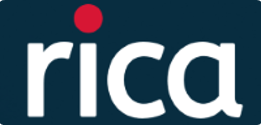The use of the Khan Academy platform as a differentiated proposal in the teaching of Mathematics
Keywords:
Khan Academy, self-taught learning, mathematics teachingAbstract
The Khan Academy website offers various didactic resources in various areas of knowledge such as mathematics, biology, chemistry, physics, astronomy, medicine, computing. The contents of mathematics are divided into 557 skills ranging from basic operations to more advanced exercises in algebra, geometry, and calculus. The Khan Academy makes content available to users from exercises and videotapes according to the selected subject. You can also access abstracts, examples and exercises to practice. In order to make the learning process more attractive and exciting, especially for children and adolescents, the user is invited to form a profile in which he/she will add a score according to the correctness of the exercises, being able to be rewarded even for medals. In this context, the platform can be very useful for self-taught students who need to learn certain content on their own initiative, but can also be used by teachers as a learning support resource.
References
KHAN ACADEMY. Página oficial. https://pt.khanacademy.org/. Acesso em 3 de junho de 2018.
SALMAN, A. K. 2018. Wikipédia, Disponível em: https://pt.wikipedia.org/wiki/Sal_Khan. Acesso em 3 de junho de 2018.
LEMANN, 2018. Fundação Lemann. Acesso em 2 de junho de 2018. https://fundacaolemann.org.br/
NATURA, 2018. Instituto NATURA. Disponível em: http://www.institutonatura.org.br/iniciativa/ Acesso em 2 de junho de 2018.
PENINSULA, 2018. Instituto Peninsula.. Disponível em: http://www.institutopeninsula.org.br/ Acesso em 2 de junho de 2018.
ISMART, 2018. Disponível em: http://www.ismart.org.br/ . Acesso em 3 de junho de 2018.
TELEFONICA, 2018. Disponível em: www.fundacaotelefonica.org.br Acesso em 3 de junho de 2018.
KAPP, Karl M. The gamification of learning and instruction: game-based methods and strategies for training and education. John Wiley & Sons, 2012.
FREIRE, Paulo. Pedagogia da autonomia: saberes necessários à prática docente. São Paulo: Paz e Terra, 1996.
BRASIL, Ministério da Educação, Secretaria de Educação Média e Tecnológica. Parâmetros curriculares Nacionais: matemática - 1º e 2º ciclos de Ensino Fundamental. Brasília, Ministério da Educação, 1999.
FREIRE, P. Pedagogia do oprimido. 17. ed. Rio de Janeiro: Paz e Terra, 1987.
LUCKESI, C. C. Avaliação da aprendizagem escolar: estudos e proposições. 15. ed. São Paulo: Cortez, 2003.
SOARES, E. M. S. (1997). Comportamentos matemáticos e o ensino de matemática para cursos de Engenharia. Tese (doutorado). Programa de Pós Graduação da Universidade Federal de São Carlos.
CAILLOIS, R. Os jogos e os homens: a máscara e a vertigem. Lisboa: Cotovia, 1990.
Downloads
Published
How to Cite
Issue
Section
License
Copyright (c) 2021 Interdisciplinary Journal of Applied Science

This work is licensed under a Creative Commons Attribution-NonCommercial-NoDerivatives 4.0 International License.
Authors keep the copyright and cede to the journal the right of publishing first. Published works are licensed under a Creative Commons Attribution 4.0 International (CC BY 4.0) license, allowing the sharing of the work with recognition of the authorship and initial publication in this journal.






